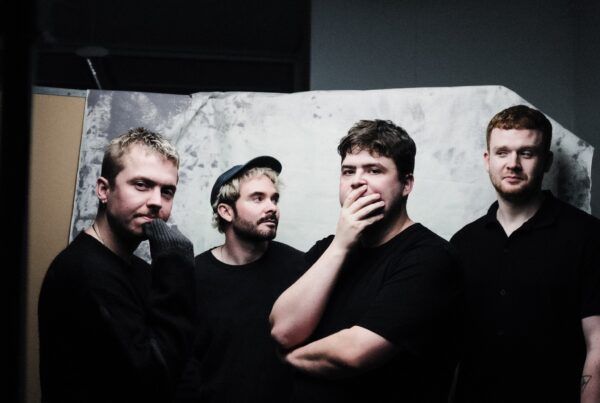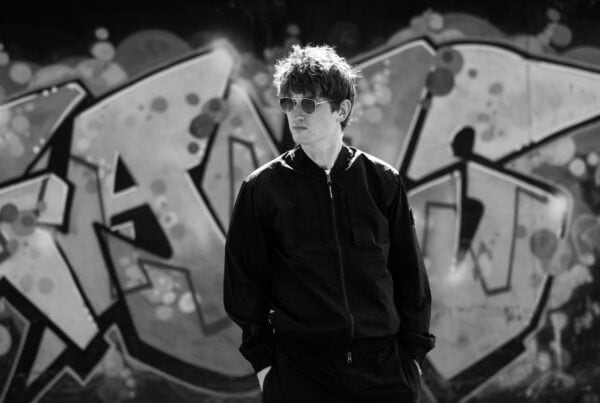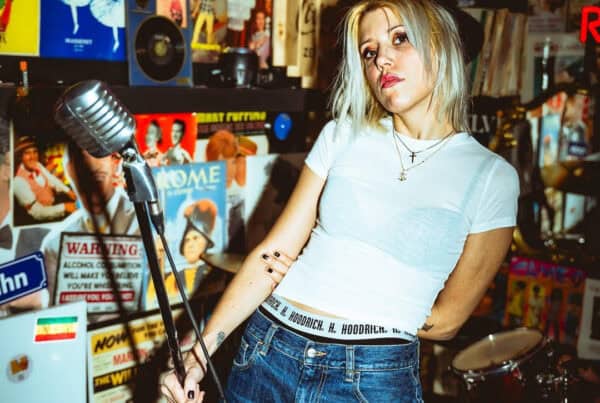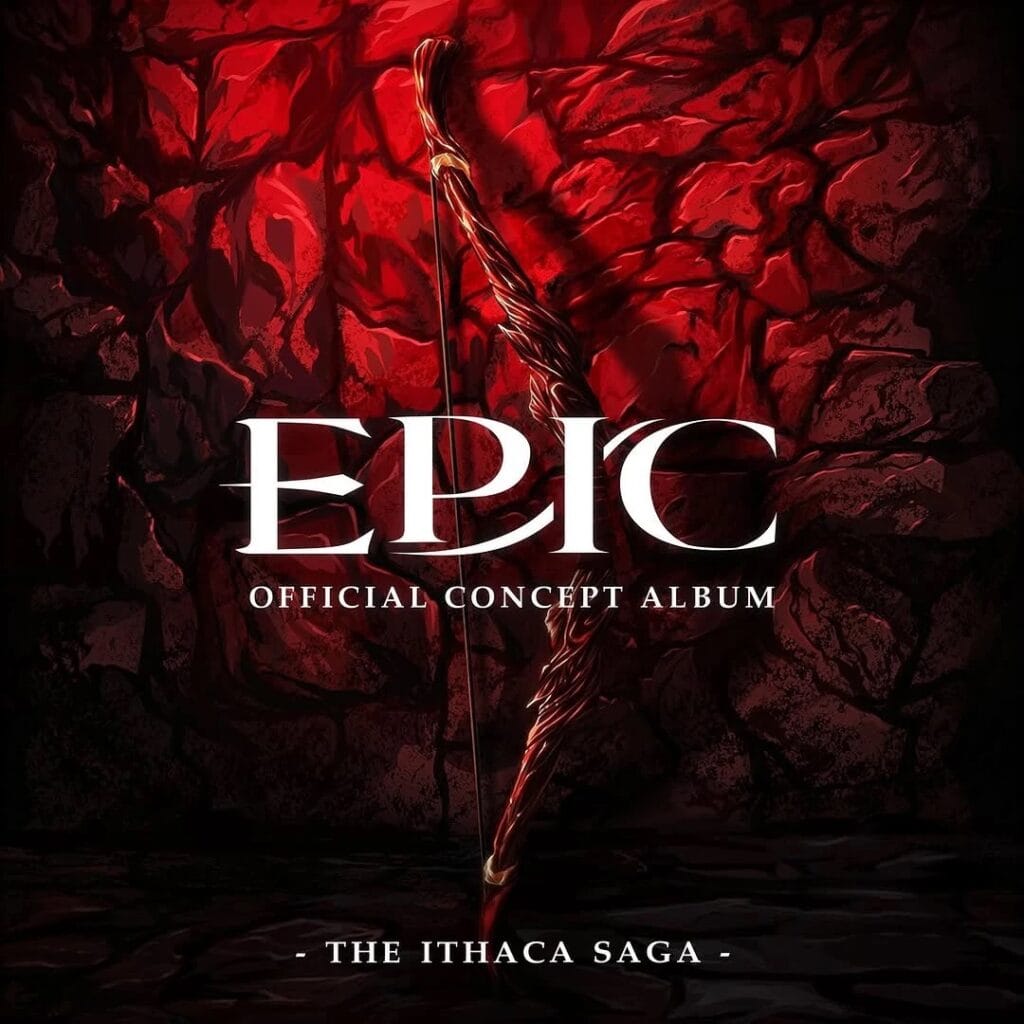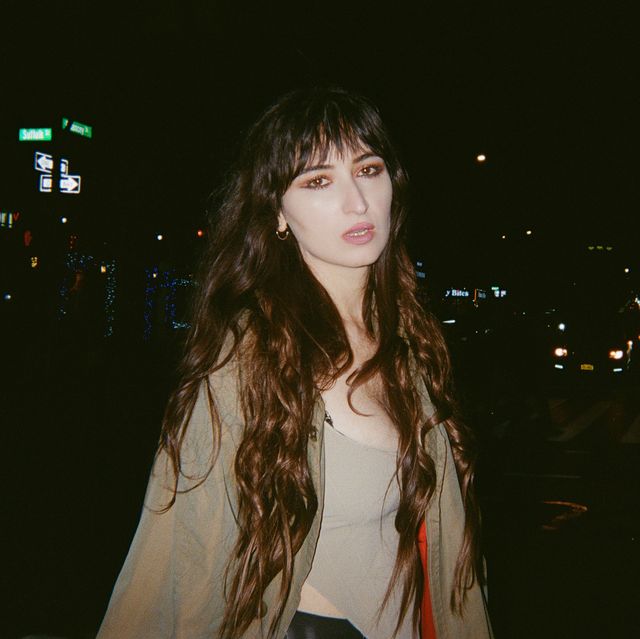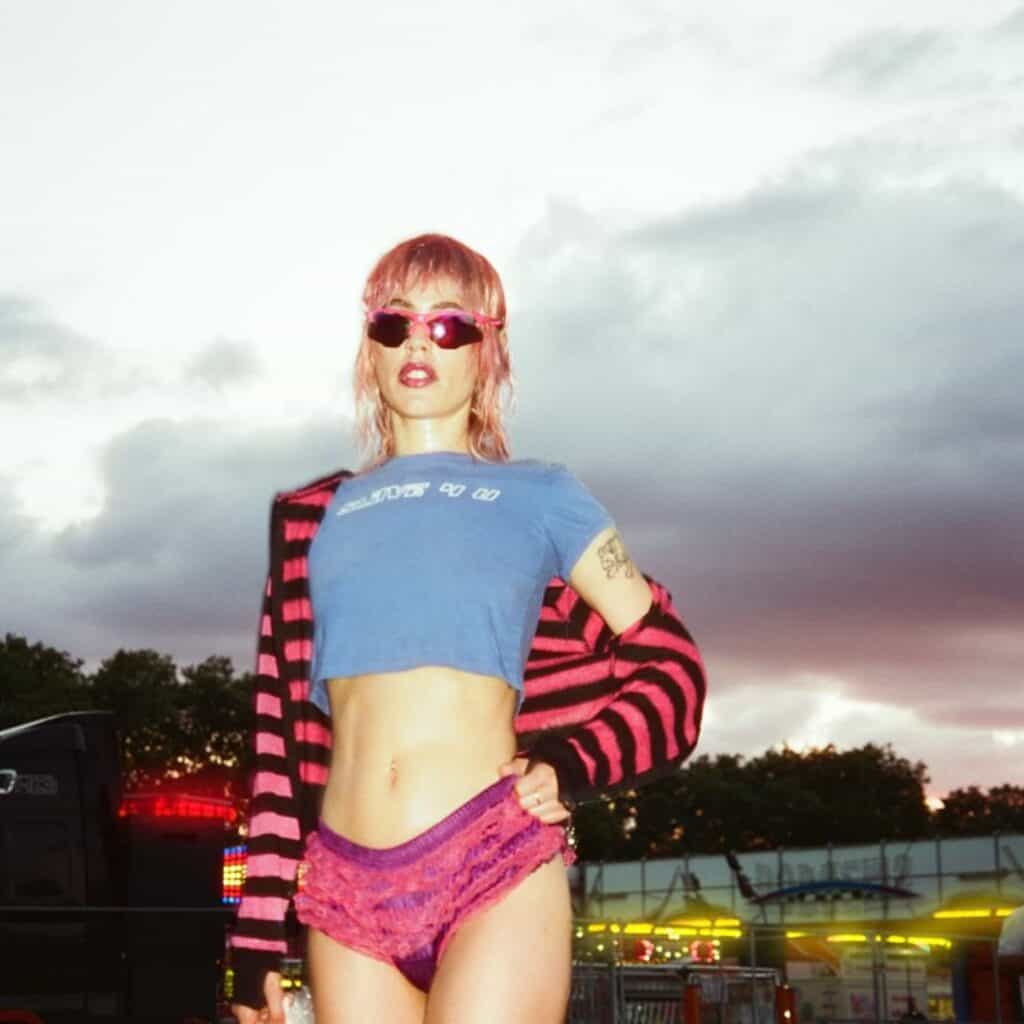In this feature, accompanied by audio, Gaelynn Lea talks to Dom Smith about her work with RAMPD, attitude towards touring in the post-Covid era, and more.
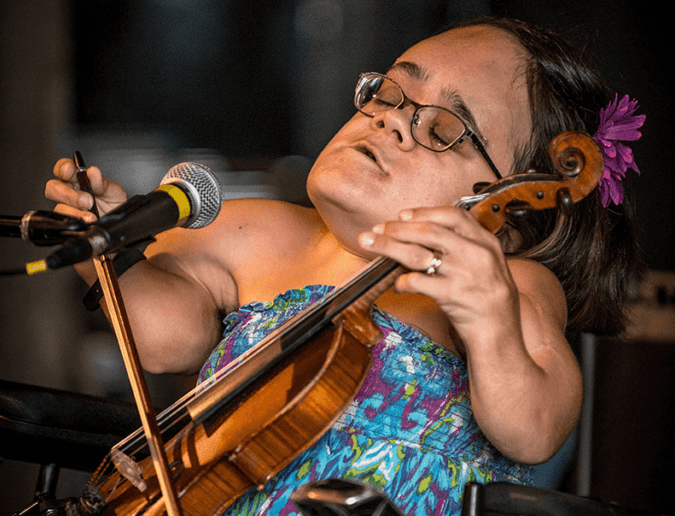
On Success
“It’s about doing what you love, and what you set out to do, and creating something that you are proud of,” says Gaelynn. “For me, being able to do this for a living is success for me. I think success is an interesting word, I don’t think we should think about music that way. It’s more about the creative part of it, rather than how it is received in the world.”
Legacy
“Your legacy is with the individuals that enjoy your music,” comments Gaelynn, reflecting on past shows, and her streaming success. “If only five people are at your shows, it doesn’t mean you don’t have a legacy. You don’t have to be the biggest band in the world, to have an impact on people’s lives.”
Continuing on to examine her legacy as it relates to being a creative person with a disability, Lea states: “If disability culture has a legacy, I think it’s going to be creativity – the world wasn’t built for us, so how are we going to redesign it?”
Gaelynn asserts that there are certain barriers to creating a legacy for disabled artists: “I don’t think disability and art is valued in the US, as much as it is in the UK. We are working to change that.” Here, Lea is referring to her work as co-founder of RAMP, which aims to promote disabled musicians and artists.
RAMPD
In 2018, Gaelynn Lea decided that she was only going to play in accessible venues: “Venues weren’t changing if I was willing to be lifted on to the stage, or if I was willing to go across the street to use the bathroom. If I went along with it, they weren’t going to make the changes, so it became something that I just decided to put ‘a line in the sand’, so that other artists can be empowered to do it.”
RAMPD founder Lachi had been on a number of panels with Gaelynn over the years around diversity and disability culture – that led to Lea lending her support: “It was great to have people talking about these things, but it’s the actions that matter, and what people do after the conversations.
“Now, I don’t just have to say that I want accessible venues, there is now a coalition of 65+ disabled artists that want these things. It lends weight and support to what we are doing. Disabled artists have to navigate behind the scenes. We have to make the changes so that it is inclusive, and equitable for everybody.”
Being a disabled artist has meant that, a lot of the time, Gaelynn has had to advocate for herself, and her own needs when it comes to performing live, particularly in the post-Covid landscape. She says: “I just ask for what is safe, and what is equitable, and the worst thing that somebody can say is ‘no’, right? I want to keep asking for creative solutions from artists about how to make things more accessible for artists, because our society benefits from being more diverse.”
Confidence
Gaelynn could have had a number of surgeries to straighten her limbs out when she was younger, for the potential (not guarantee) of walking, but felt comfortable in her own skin when she was growing up, and this holds an important message that she shares for young disabled musicians: “By the time I was in Junior High, I was like, ‘I don’t want to mess up the nerves in my hand’, but also my wheelchairs are getting better. I am interested in a lot of things. I just didn’t think that walking was going to really enhance the way that I lived. I also felt that I wouldn’t be me without my disability. I don’t feel out of place in my body. People still say weird things once in a while, but ultimately, I decided that it doesn’t really matter what people think. You have to give people space to change their misconceptions [around disability].”
Gaelynn continues on to discuss the work that she does in schools, and how the more that happens the more “normalised” disability becomes: “It’s not about inspiring people, it’s about normalising stuff. The more that you do, you normalise it, and then all of a sudden the next generation isn’t having to go through the insecurities that we might be [right now] around disability, because it is normal.”
For more resources for Disabled Musicians visit Attitude Is Everything.
For more on Gaelynn Lea visit: https://violinscratches.com/
Listen to the full audio chat here, where Gaelynn talks Macbeth on Broadway, her beautiful voice, accessibility in venues and more:

